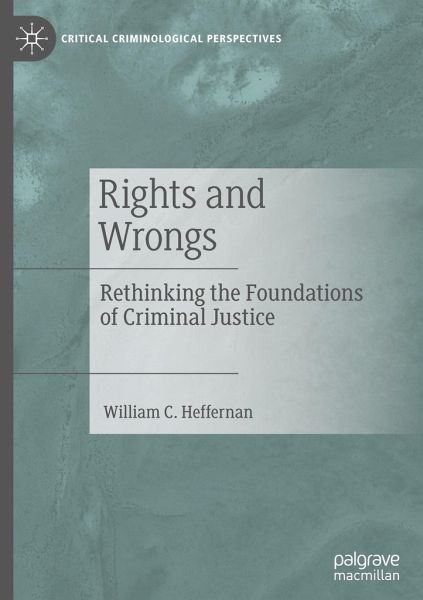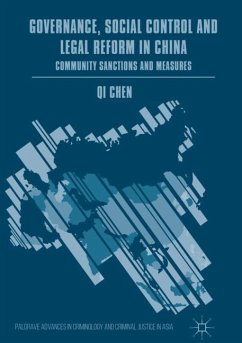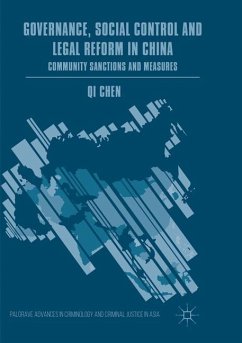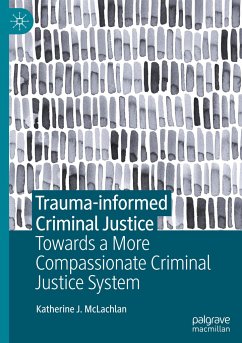
Rights and Wrongs
Rethinking the Foundations of Criminal Justice
Versandkostenfrei!
Versandfertig in 6-10 Tagen
49,99 €
inkl. MwSt.
Weitere Ausgaben:

PAYBACK Punkte
25 °P sammeln!
This book seeks to explain why the concept of justice is critical to the study of criminal justice. Heffernan makes such a case by treating state-sponsored punishment as the defining feature of criminal justice. In particular, this work accounts for the state's role as a surrogate for victims of wrongdoing, and so makes it possible to integrate victimology scholarship into its justice-based framework. In arguing that punishment may be imposed only for wrongdoing, the book proposes a criterion for repudiating the legal paternalism that informs drug-possession laws.Rethinking the Foundations of ...
This book seeks to explain why the concept of justice is critical to the study of criminal justice. Heffernan makes such a case by treating state-sponsored punishment as the defining feature of criminal justice. In particular, this work accounts for the state's role as a surrogate for victims of wrongdoing, and so makes it possible to integrate victimology scholarship into its justice-based framework. In arguing that punishment may be imposed only for wrongdoing, the book proposes a criterion for repudiating the legal paternalism that informs drug-possession laws.
Rethinking the Foundations of Criminal Justice outlines steps for taming the state's power to punish offenders; in particular, it draws on restorative justice research to outline possibilities for a penology that emphasizes offenders' humanity. Through its examination of equality issues, the book integrates recent work on the social justice/criminal justice connection into the scholarly literature on punishment, and so will particularly appeal to those interested in criminal justice theory.
Rethinking the Foundations of Criminal Justice outlines steps for taming the state's power to punish offenders; in particular, it draws on restorative justice research to outline possibilities for a penology that emphasizes offenders' humanity. Through its examination of equality issues, the book integrates recent work on the social justice/criminal justice connection into the scholarly literature on punishment, and so will particularly appeal to those interested in criminal justice theory.














